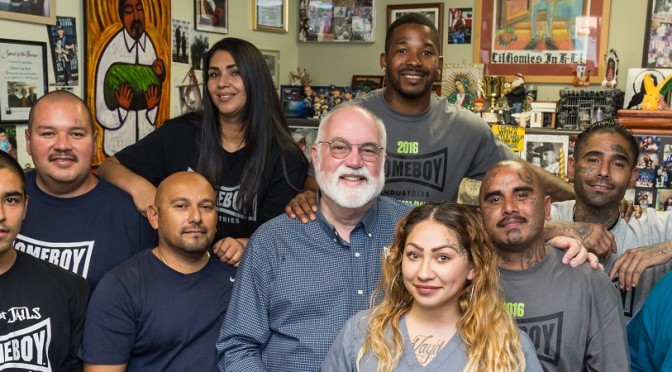Caitlin Trussell with Augustana Lutheran Church on July 11, 2021
[sermon begins after two Bible readings]
Mark 6:14-29 King Herod heard of it, for Jesus’ name had become known. Some were saying, “John the baptizer has been raised from the dead; and for this reason these powers are at work in him.” 15But others said, “It is Elijah.” And others said, “It is a prophet, like one of the prophets of old.” 16But when Herod heard of it, he said, “John, whom I beheaded, has been raised.”
17For Herod himself had sent men who arrested John, bound him, and put him in prison on account of Herodias, his brother Philip’s wife, because Herod had married her. 18For John had been telling Herod, “It is not lawful for you to have your brother’s wife.” 19And Herodias had a grudge against him, and wanted to kill him. But she could not, 20for Herod feared John, knowing that he was a righteous and holy man, and he protected him. When he heard him, he was greatly perplexed; and yet he liked to listen to him. 21But an opportunity came when Herod on his birthday gave a banquet for his courtiers and officers and for the leaders of Galilee. 22When his daughter Herodias came in and danced, she pleased Herod and his guests; and the king said to the girl, “Ask me for whatever you wish, and I will give it.” 23And he solemnly swore to her, “Whatever you ask me, I will give you, even half of my kingdom.” 24She went out and said to her mother, “What should I ask for?” She replied, “The head of John the baptizer.” 25Immediately she rushed back to the king and requested, “I want you to give me at once the head of John the Baptist on a platter.” 26The king was deeply grieved; yet out of regard for his oaths and for the guests, he did not want to refuse her. 27Immediately the king sent a soldier of the guard with orders to bring John’s head. He went and beheaded him in the prison, 28brought his head on a platter, and gave it to the girl. Then the girl gave it to her mother. 29When his disciples heard about it, they came and took his body, and laid it in a tomb.
Ephesians 1:3-14 Blessed be the God and Father of our Lord Jesus Christ, who has blessed us in Christ with every spiritual blessing in the heavenly places, 4just as he chose us in Christ before the foundation of the world to be holy and blameless before him in love. 5He destined us for adoption as his children through Jesus Christ, according to the good pleasure of his will, 6to the praise of his glorious grace that he freely bestowed on us in the Beloved. 7In him we have redemption through his blood, the forgiveness of our trespasses, according to the riches of his grace 8that he lavished on us. With all wisdom and insight 9he has made known to us the mystery of his will, according to his good pleasure that he set forth in Christ, 10as a plan for the fullness of time, to gather up all things in him, things in heaven and things on earth. 11In Christ we have also obtained an inheritance, having been destined according to the purpose of him who accomplishes all things according to his counsel and will, 12so that we, who were the first to set our hope on Christ, might live for the praise of his glory. 13In him you also, when you had heard the word of truth, the gospel of your salvation, and had believed in him, were marked with the seal of the promised Holy Spirit; 14this is the pledge of our inheritance toward redemption as God’s own people, to the praise of his glory.
[sermon begins]
Last Sunday, I stopped at the grocery store on my way home from church. This means that I was also still wearing my church clothes, including the collar. Choosing the zippiest checkout lane, I found myself in a line with a cashier I’d never met. She wasn’t new, by any means. She was waving at people who called out her to her, talking across lanes with other cashiers, directing the grocery bagger on how to help a customer with propane, and welcomed me to the party with a warm, “Hi honey, how are you?” As she handed me the receipt, she held onto it for a few seconds, leaned way over and quietly asked, “Are you a priest?”
“A pastor,” I replied.
“Will you pray for me?”
“Yes,” I said as I started looking for her name tag to commit it to memory.
She held up her name badge and told me her name. I repeated her name and told her again that I would pray for her. She thanked me and I went on my way. From entering her line to the prayer request couldn’t have been more than five minutes – a short, sincere, and significant scene.
Our Bible story today is a scene of a different kind. The gospel writer teased us in the first chapter with half a verse about John the Baptist’s arrest and in the third chapter with the Pharisees conspiring against Jesus with Herod’s followers, but waited until the sixth chapter to expand on the story.[1] It’s the full meal deal with John’s head served as the final course of the banquet at Herod’s party.[2] Gruesome and horrific, it’s like a scene in a movie that spotlights just how evil the evil ones can be. Herod had heard about Jesus and his apostles proclaiming repentance, casting out demons, and curing the sick among the villages. When he heard about it, Herod was haunted by the idea that John, whom he beheaded, had been raised. Initially, Herod imprisoned John to protect him from his wife Herodias’ grudge. He liked listening to John’s perplexing teachings and confined him to a handy dungeon. But Herodias won the long game and trapped Herod in his oath-keeping and in his concern for what other people thought about him. Herod was “deeply grieved,” but apparently not grieved enough to do the right thing.
Herod executed John to save face and protect his power. His evil act haunted him when he heard about the things that Jesus and his apostles were doing, once again connecting John the Baptist’s and Jesus’ ministries. At first, Herod’s deep regret stood out in this gruesome tale as something we can all relate to – even if we haven’t chopped off anyone’s head. But then, Jesus’ apostles and John’s disciples became more compelling. What were they doing around the edges of Herod’s evil acts? Mark, the gospel writer, bookends Herod’s story by first highlighting Jesus’ apostles preaching repentance, casting out demons, and curing the sick; and afterwards, recounting how “the apostles gathered around Jesus to tell him all that they had done and taught” before they got down to Feeding the Five Thousand.[3] Mark concludes John’s murder with a short note about his own disciples’ compassion and action. “When his disciples heard about it, they came and took his [beheaded] body, and laid it in a tomb.” Not only does laying John in a tomb further connect his ministry and its end to Jesus’ earthly ministry and its end, but John’s disciples and Jesus’ apostles are examples of people practicing hope in the face of institutional evil and corrupt power.
Last week, I was in a meeting in which the opening icebreaker was to share a sentence or two about where we see signs of hope in a violent world. As you might imagine, the answers were all over the board, but there was a unifying theme that could be described as the hopeful behavior that we see other people doing and that we ourselves try to do – people creating hope for themselves and others by working with other people creating hope for themselves and others. Not spinning illusory hope for someday but working towards practical hope for today. Working repentance and healing for abundant life for everyone. And this takes us to the Ephesians Bible reading.
This reading starts the first of seven weeks in Ephesians, so it’s a good time to read this very short book attributed to Paul, although more likely written by one of his students. Ephesus was located in what’s now the western coast of Turkey. The letter’s message praises God’s work in Jesus, freeing us from sin by grace through faith that creates us for good works. In these opening verses of the first chapter that were read today, we hear about the spiritual blessings in Christ. Included in the list of blessings is redemption in Christ. Redemption in Biblical times meant the equivalent of being freed from slavery.[4] Redemption from sin would mean being freed from sin. Now obviously, Jesus followers have as much problem with sin as anyone else. But redemption in Christ also gives us a faith community through our baptisms and through whom we experience the weekly and even daily call to surrender our sin at the foot of the cross and practice faith, hope, and love as adopted children of God through Jesus Christ.
It’s taken me more that my fair share of time to figure out that being adopted as a child of God through baptism has nothing to do with playing it safe. In fact, being named child of God in baptism draws us into acts of practical hope for today that often don’t align with the goals of leaders who hold institutional power. Was John the Baptist safe? No. Was Jesus safe? No. Were Jesus’ early followers safe? No. Are we safe? No, I’m afraid not. What we are is redeemed and freed by the gospel into the work of practical hope assigned by Jesus.
The cashier who asked for prayer sees Jesus people as a sign of practical hope. Each day our baptism works in us the practical hope of dying to sin and raising us to new life so that we’re less like Herod and more like Jesus. Living into a life that is ever more Christ-shaped as a Jesus follower, safety from corrupt power fades to black while acts of practical hope take center stage in public acts of the faithful. Advocacy is one way to do the work of practical hope; community organizing is another. Working through legislation and ballot initiatives that change people’s real lives now. It’s partly why Augustana has a fledgling Human Dignity Delegate ministry to address issues of human dignity in the public square. The next meeting is August 1. Let me know if you’d like more details.
In a moment we’ll sing “Listen, God is Calling.” In the language of Herod’s story, God calls us from our self-absorbed, death-dealing sin. God redeems us into freedom from those very sins and our inevitable regret for them. God’s call through the cross of Christ empowers us by the Holy Spirit into the unsafe, bold, and practical hope on behalf of the gospel for the sake of the world. It’s a good day to be reminded of this good news. Amen.
Song after the sermon:
Listen, God is Calling [Neno lake Mungu][5]
#513 Evangelical Lutheran Worship (Minneapolis: Augsburg Fortress, 2006)
Refrain
Listen, listen, God is calling through the Word inviting, offering forgiveness, comfort and joy. (repeat)
Jesus gave his mandate; share the good news that he came to save us and set us free. [Refrain]
Let none be forgotten throughout the world. In the triune name of God go and baptize. [Refrain]
Help us to be faithful, standing steadfast, walking in your precepts, led by your Word. [Refrain]
_______________________________________________________________
[1] Mark 1:14 and Mark 3:6
[2] Karoline Lewis, Professor of Biblical Preaching, Luther Seminary, St. Paul, MN. Sermon Brainwave: Commentary discussion of Mark 6:14-29 for July 11, 2021. https://www.workingpreacher.org/podcasts/792-7th-sunday-after-pentecost-ord-15b-july-11-2021
[3] Mark 6:30 immediately follows the gospel reading of Mark 6:14-29
[4] Lutheran Study Bible (NRSV). Ephesians 1:7 study note. (Minneapolis: Augsburg Fortress, 2009), 1922.
[5] Austin Lovelace and Howard S. Olson (1968). Lutheran Theological College, Makumira, Tanzania, admin. Augsburg Fortress.

![Practical Hope for Life Today [OR Listen, God is Calling] Mark 6:14-29 and Ephesians 1:3-14](http://caitlintrussell.org/wp-content/uploads/2021/07/receipt-hands-sermon-caitlin-trussell-672x372.jpg)

![Violence, Guilt, and Defiant Faith [OR Pillars of the Earth, American Vaudeville, and the Apostle Paul] Matthew 21:33-46 and Philippians 3:4b-14](http://caitlintrussell.org/wp-content/uploads/2017/10/A-Cubist-Prayer-One-World-One-God.painting-by-Anthony-Falbo.sermon-Caitlin-Trussell-672x372.jpg)


